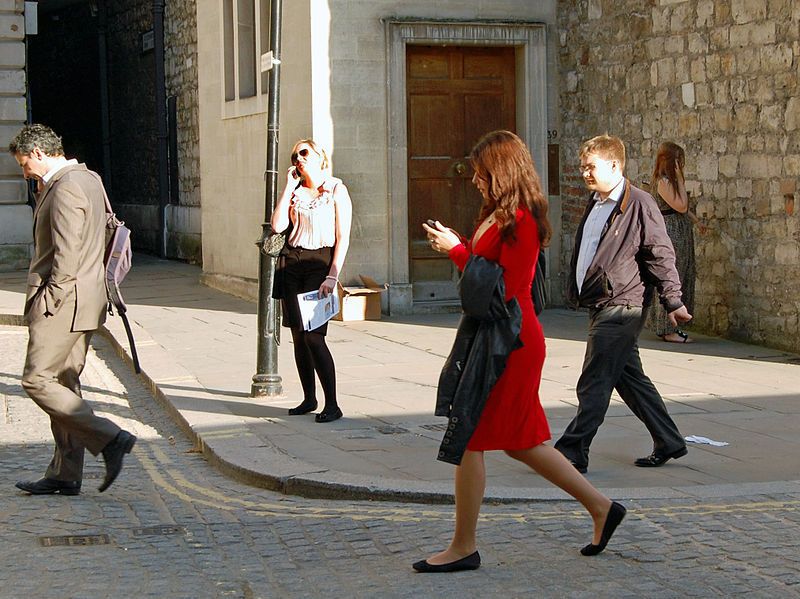/image%2F1152236%2F20160308%2Fob_e272fd_newport-deepwork-hc-web.jpg)
via FastCompany by Vivian Giang
Georgetown Professor Cal Newport thinks uninterrupted, distraction-free deep work is so important that if you’re unable to do this at your current job, you should start looking for another.
"Many people have convinced themselves that it’s crucial that they are always connected, both professionally and socially, but the reality is that this requirement is self-imposed," he says. "Shallow tasks like reading and responding to emails or checking social media might prevent you from getting fired, but it’s deep tasks that produce the value and build the skills that get you promoted."
If it’s self-imposed, like Newport suggests, then what is really preventing people from accomplishing the demanding, cognitive, head-down work that’s needed to thrive professionally? As Newport mentions in his new book Deep Work: Rules for Focused Success in a Distracted World, it’s the bouncing around from task to task, or multitasking, that deteriorates the muscle allowing you to focus. And the more you multitask, the less comfortable you’ll be "going deep for extended periods of time," he writes.
How Multitasking Is Addictive And Damaging
Research repeatedly tells us that multitasking is detrimental to our brain. Although jumping from task to task may result in a false sense of accomplishment, human brains weren’t built to multitask. A number of research studies have concluded that our brains are actually "dumbed down" while multitasking.
A study at the University Of London found that subjects who multitasked experienced drops in their IQ comparable to someone who missed a night of sleep. Even if multitaskers feel like they’re getting more done, they’re working at a much lower cognitive level and costing companies billions of dollars in lost productivity.
And the cognitive costs get worse. If you’re a multitasker, you might have done some serious permanent damage, as a study that ran MRI scans on the brains of multitaskers found they had less brain density in areas that controlled empathy and emotions.
Furthermore, multitaskers become addicted to the instant gratification that comes after completing a small task, like sending an email. This leads to a dangerous feedback loop that leaves you believing you’re producing at optimal rate, but this is deceptive.
In theory, it seems like you’re getting more done, but since our brains aren’t built to constantly task-switch, we have what’s called "attention residue" left behind every time we go from one task to another. In his Deep Work book, Newport mentions a 2009 paper titled, "Why Is It So Hard to Do My Work?" where Sophie Leroy, a professor at the University of Minnesota, writes:
People need to stop thinking about one task in order to fully transition their attention and perform well on another. Yet, results indicate it is difficult for people to transition their attention away from an unfinished task, and their subsequent task performance suffers.
Attention Residue
Therefore, "attention residue" occurs, which is when you’re thinking of one task even though you’ve supposedly already moved on to the next. This happens often in modern busy offices where it’s common to transition from a meeting to work to social media and back to work again. The more residue buildup you have, the worst you’ll perform on all tasks. The same University of London study mentioned above found that just knowing an unread email is sitting in your inbox can reduce a multitasker’s IQ by 10 points. Men who multitask have it the worst, as their IQ can drop as much as 15 points, meaning they would have the cognitive equivalent of an 8-year-old.
Rebuilding The Brain
So how does one break the destructive cycle?
Newport suggests this is where "deep work" comes in, which is "when you focus without distraction on a cognitively demanding task," he told Fast Company. "For an effort to be considered deep work—and for it to reap the rewards depth can offer—there can be no distraction." That means not even a quick glance at your inbox, which can "drastically reduce your cognitive function and therefore reduce the quality and quantity of what you produce." In Newport’s older books, like How to Become a Straight-A Student and How to Win at College, he proposes that the best students aren’t the ones who study more, but actually the ones who can study for uninterrupted stretches. By maximizing the intensity and concentration of their work, they can maximize the high quality of the work they produce.
"High-quality work produced is a function of two things—the amount of time you spend on the work and the intensity of your focus during this time," said Newport. "If you can increase your focus, you'll get more done in less time."
So, unless you’re just way ahead of the curve and can afford your brain performing at a much lower level, then you’re going to have to stop multitasking if you want to beat the competition.
How do you do this? Newport explained:
The ability to perform deep work requires training. Not only do you need to practice challenging your mind, but you also need to wean yourself off an addiction to distraction. I suggest, for example, scheduling the times outside of work when you will use your phone or tablet, and then put the technology away outside those times. In other words, you need many hours every day where you're a little bit bored
And whatever you do, don’t switch to Task B until you are completely done with Task A.

/image%2F1152236%2F20191031%2Fob_cdc6f8_hans-peter.jpg)
